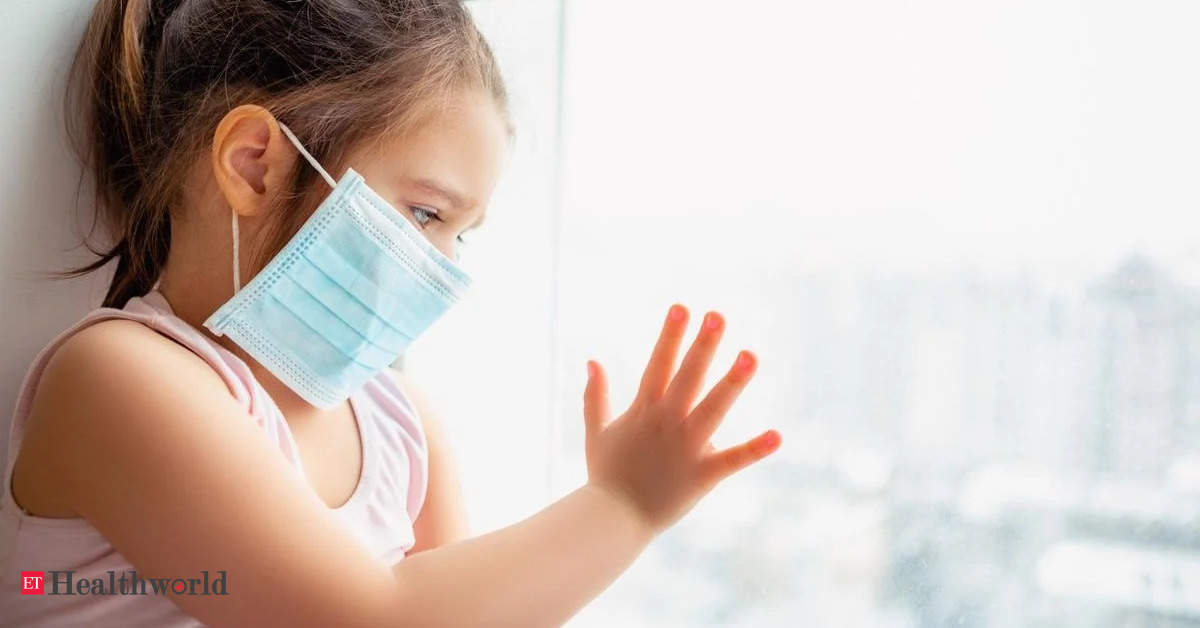The COVID pandemic has exposed the fault lines in healthcare systems and routine national immunization programs around the world.
A recent World Health Organization (WHO) report showed that the pandemic has caused the largest sustained decline in childhood immunization coverage.
These declines threaten to reverse the extraordinary efforts made to prevent and control the devastating burden of vaccine-preventable diseases worldwide. Routine vaccinations have prevented two to three million deaths annually. 800,000 of the lives were saved in the Africa region. Routine immunizations have led to drastic reductions in diseases like neonatal tetanus and measles. And bacterial meningitis (type A) and polio have been virtually eradicated across the continent.
The impact of the pandemic on routine immunization programs in the African region has yet to be fully appreciated. What we know so far is that the pandemic has caused significant disruption to routine national immunization programs. As a result, the continent is witnessing an increased number of outbreaks of vaccine-preventable diseases.
African countries had almost eradicated the deadly form of type A meningitis. However, a four-month meningitis outbreak was reported in the Democratic Republic of the Congo in 2021. He accounted for 2,665 cases and claimed 205 lives. This resurgence has been linked to the suspension of meningitis vaccination campaigns at the height of the COVID pandemic. In February 2022, Malawi reported its first wild case of poliovirus type 1 in 30 years. A second case followed three months later in Mozambique. The outbreaks sparked mass polio vaccination campaigns in southern Africa.
UNICEF and the WHO warn of an increased risk of measles outbreaks in view of increasing vaccination gaps.
Zimbabwe is currently battling a devastating measles outbreak. Within five months there were 6,551 confirmed cases of measles and 704 deaths.
These new outbreaks are of great concern. They call for urgent and sustained public health interventions. If not implemented, the compounding impact of the pandemic could derail regional progress toward global immunization goals that safeguard the health and well-being of infants and children.
The resurgence of deadly, vaccine-preventable diseases underscores the importance of maintaining high immunization coverage. Children everywhere must have access to all recommended life-saving vaccines they need. The disruptions observed during the COVID pandemic also underscore the importance of building resilient health systems. Systems must be able to withstand acute and sustained shocks while delivering critical health services such as immunization programs.
Vaccination against COVID
It is important to contextualize the implementation of routine immunization programs in the African region. Even before the pandemic, the African region was struggling with a precarious situation.
For one, an estimated 30.7 million children under the age of five continue to suffer from vaccine-preventable diseases. These include rotavirus diarrhea, pneumonia, whooping cough and measles. Of these children, more than 520,000 die each year due to poor access to basic immunization services.
The continent’s health systems deal with an average of 150 cases of disease outbreaks and other public health emergencies each year. These range from armed conflicts to climate-related disasters (including floods, droughts and famines) and disease outbreaks. National routine vaccination programs had to work in this context.
The pandemic has increased vaccination gaps
On the continent, the pandemic has significantly disrupted national routine immunization programs. Health systems in many countries have been forced to divert limited resources to fight the pandemic. This often left vaccination services vulnerable.
At the height of the pandemic, several countries said they were shutting down vaccination services. There have been disruptions in vaccine supply chains, leading to stockpiling. The number of people seeking vaccination services fell due to restrictions on public gatherings. Many people also feared exposure to the virus in healthcare facilities.
A good measure of COVID-related disruptions to immunization programs is coverage of the three doses of diphtheria-tetanus-pertussis vaccine (DTP3). WHO uses the reach of DTP3 to monitor access to immunization services and measure the performance of broader health systems.
The WHO report shows that the COVID-19 pandemic has contributed to an overall decline in DTP3 coverage worldwide, regardless of economic strength or income level.
In Africa, national immunization programs in several countries maintained optimal performance, achieving DTP3 coverage rates in excess of 90%. These included Algeria, Botswana, Burkina Faso, Burundi, Ghana, Kenya, Malawi, Mauritius, Namibia, Sierra Leone, Uganda and Zambia.
Of concern, however, are the 29 countries that had less than 90% immunization coverage, resulting in significant under-vaccinations.
Rising misinformation and disinformation during the pandemic has also led to some decline in public trust in immunization services. This has significantly impacted the demand for vaccines.
Sketch a way forward
The pandemic is providing useful lessons on the importance of continually strengthening health systems and “resilient” routine national immunization programs.
COVID-19 has been a catalyst for renewed political interest in immunization programs. However, this needs to be followed up with regional solidarity to give new priority to routine vaccination in national and regional public health agendas.
National governments will be responsible for securing and sustaining donor funding while increasing domestic financial commitments to fill the funding gaps for national immunization programs. This is in line with the statements they agreed to.
Above all, the demand for vaccines and vaccination programs must be increased. This is critical to restoring public confidence in vaccines and immunization services in a post-COVID world. (The conversation) NSA
#COVID #pandemic #created #vaccination #gaps #Africa #million #children #risk #HealthWorld


Leave a Comment